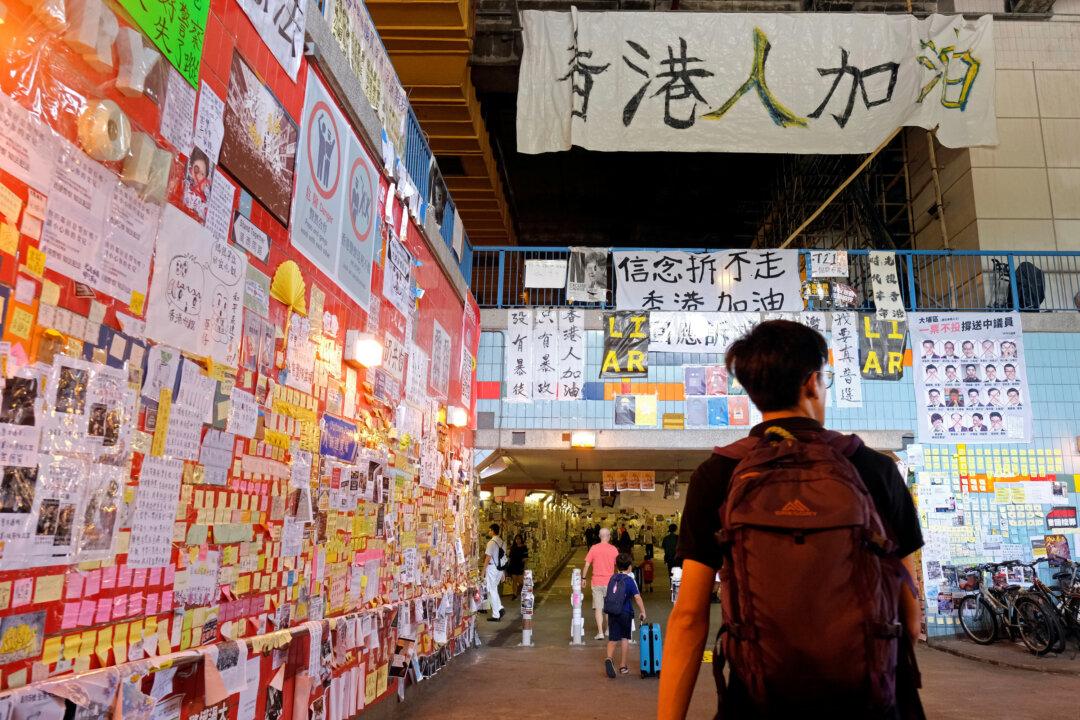HONG KONG—A pro-Beijing lawmaker has called for a Clean Hong Kong Day on Sept. 21, urging supporters to pull down “Lennon Walls” of anti-government graffiti across the Chinese-ruled city, a possible flashpoint in more than three months of unrest.
The Lennon Walls are large mosaics of Post-it notes calling for democracy and denouncing perceived Chinese meddling in the former British colony that have cropped up in underpasses, under footbridges, outside shopping centers and elsewhere.





